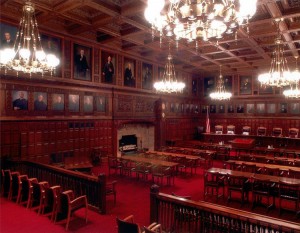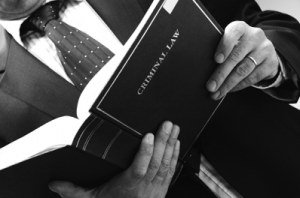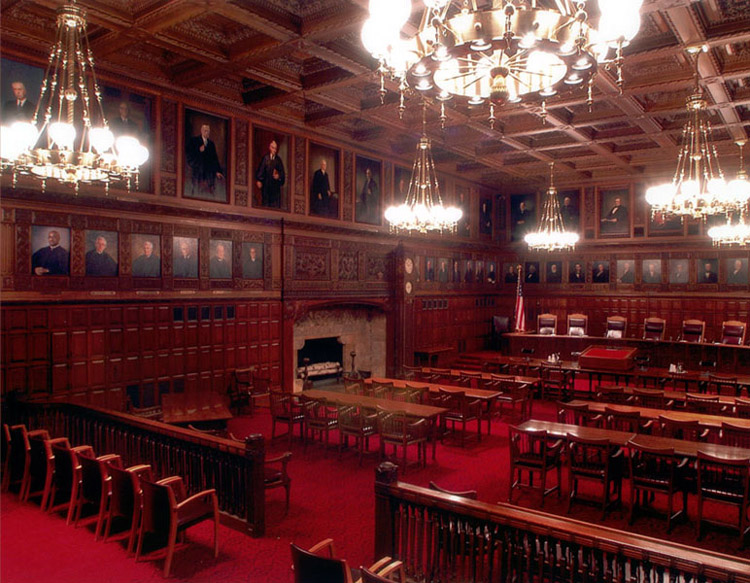Writ Of Errors Coram Nobis And Failure To File The Notice Of Appeal
People v. Rosario
2015 NY Slip Op 09230
New York Court of Appeals
Decided on: December 16, 2015
Issue: Whether a defendant has recourse via the writ or errors coram nobis application when he failed to timely file his notice of appeal within the one-year grace period provided in CPL 460.30 due to ineffective assistance of counsel.
Holding: The Court of Appeals held that a defendant who wished to take an appeal must generally do so within 30 days after imposition of sentence, CPL 460.10[1][a].
CPL 460.30 allows an appellate court to grant an extension of time to file a notice of appeal if defendant makes a motion, with due diligence, after the 30 days has expired but in no event more than one year thereafter. The one-year grace period is strictly enforced since the time limits within which appeals must be taken are jurisdictional in nature and courts lack inherent power to modify or extend them, People v Andrews, 23 NY3d 605, 611 [2014].
 Here, defendant argued that coram nobis relief should be granted due to counsels failure to advise him of his appeal rights. The Court of Appeals held that the defendant did not claim that he requested that his attorney file a notice of appeal and that his attorney failed to comply with that request. The record supports the conclusion hat defendant had no intention of appealing as he waited years before seeking relief and under the circumstances failed the meet the burden on the coram nobis application.
Here, defendant argued that coram nobis relief should be granted due to counsels failure to advise him of his appeal rights. The Court of Appeals held that the defendant did not claim that he requested that his attorney file a notice of appeal and that his attorney failed to comply with that request. The record supports the conclusion hat defendant had no intention of appealing as he waited years before seeking relief and under the circumstances failed the meet the burden on the coram nobis application.
The Court held that when an attorney has failed to comply with a timely request for the filing of a notice of appeal and the defendant demonstrates that the omission could not have reasonably been discovered within the one-year grace period, the time limit imposed in CPL 460.30 should not categorically bar an appellate court from considering a coram nobis application to pursue an untimely notice of appeal. Thus, coram nobis relief is not just another stop on a continuum of opportunities for a defendant to seek appellate relief. Rather, it is extraordinary relief only to be provided in rare cases when a right to appeal was extinguished due solely to the unconstitutionally deficient performance of counsel, Andrews, 23 NY3d at 611 citing People v Syville, 15 NY3d 391, 398.
Facts: Luciano Rosario was arrested and charged with stalking and harassment. He appeared with counsel and was offered a plea to second-degree harassment and fourth-degree attempted criminal contempt with definite concurrent sentences, the greatest of which was 30 days. When Rosario indicated that he did not understand all of the consequences resulting from the plea, the court declined to accept Rosario’s plea and adjourned the matter to a later date.
Weeks later, Rosario appeared with counsel and accepted the Peoples offer and pleaded guilty. The court asked if Rosario waived formal allocution prosecution by information, and waived the right to appeal, to which counsel responded, yes. Rosario was sentenced consistent with his plea and no notice of appeal was filed.
Four years later, through new counsel, he filed application for a writ of errors Coram Nobis claiming that his plea counsel did not speak with him about his right to appeal. Defendant claims that had he been so informed, he would have exercised it.
He then submitted an affirmation from his current counsel who stated that Rosario’s former counsel, had no specific recollection of what transpired in the case, but it was her general practice to advise clients about the right to appeal and provide them a written statement to that effect. Defendant argued that Coram Nobis relief should be granted due to counsel’s failure to advise him of his appeal rights and that he should be provided an opportunity to file a notice of appeal. The People argue that Rosario’s claim that his plea counsel did not apprise him of the right to appeal was unsupported and had no viable issues to appeal. They also stated that he failed to exercise due diligence with respect to any potential appellate claims. The Appellate Division denied his writ of error Coram Nobis and the Court of Appeals granted leave to appeal where they affirmed the Appellate Divisions order that defendant failed to meet their burden on their Coram Nobis application.
Legal Analysis: The Court of Appeals held in People v Syville, 15 NY3D 391, that they considered whether defendants may be afforded to file a notice of appeal, even beyond the one year and 30 days permitted under the CPL. In Syville, the defendants had made timely requests to their attorneys to file a notice of appeal on their behalf but their attorneys failed to comply. The Court held that when at attorney has failed to comply with a timely request for the filing of a notice of appeal and the defendant demonstrates that the omission could not reasonably been discovered within the one-year grace period, the time limit imposed in CPL 460.30 should not categorically bar an appellate court from considering a Coram Nobis application to pursue an untimely notice of appeal. Thus, Coram Nobis relief is not just another stop on a continuum of opportunities for a defendant to seek appellate relief. Rather, it is extraordinary relief only to be provided in rare cases when a right to appeal was extinguished due solely to the unconstitutionally deficient performance of counsel, Andrews, 23 NY3d at 611 citing People v Syville, 15 NY3d 391, 398.
 Here, the Court of Appeals held that the defendant did not claim that he requested that his attorney file a notice of appeal and that his attorney failed to comply with that request. Rather, he claims that counsel did not advise him of the right to appeal, and, had he known about the right to appeal, he would have requested one. However, the only evidence proffered in support of the contention that defendant was not apprised of his appellate rights are self-serving affidavits.
Here, the Court of Appeals held that the defendant did not claim that he requested that his attorney file a notice of appeal and that his attorney failed to comply with that request. Rather, he claims that counsel did not advise him of the right to appeal, and, had he known about the right to appeal, he would have requested one. However, the only evidence proffered in support of the contention that defendant was not apprised of his appellate rights are self-serving affidavits.
To grant defendant relief here would be to broaden the Syville rule to apply to any case where a notice of appeal had not been filed within one year and 30 days of conviction. Such a rule would abrogate CPL 460.30. The defendant failed to show that his attorney was unconstitutionally ineffective and, therefore, is not entitled to the relief he seeks. Counsel stated that she had discussed the collateral consequences of a conviction including possible immigration and other consequences with defendant, and that he wanted to dispose of the matter. The Court adjourned the matter, which permitted Rosario additional time to consider the plea and rights he would be forfeiting to discuss those matters with his attorney. Three weeks later, the court specifically asked plea counsel if Rosario waived his right to appeal, to which she answered affirmatively.
Also, defendant did not make any showing that he took steps toward discovering the omission or explain why years passed before they sought Coram Nobis relief. In order to obtain exceptional relief beyond the time permitted under CPL 460.30, a defendant must show that he exercised due diligence. The record supports the conclusion that defendant had no intention of appealing, as he waited years before seeking relief and under the circumstances failed to meet the burden on the coram nobis application. Accordingly, the Appellate Division should be affirmed.
